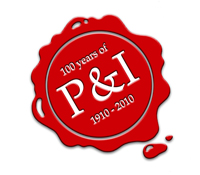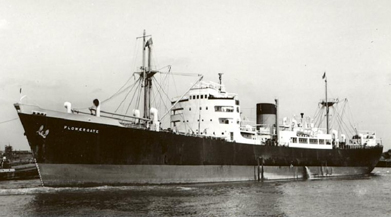
How it all began and the journey to where we are today
The Swedish Club wrote its first Hull and Machinery policy on 13 December 1872. The first entered ship, the one-year-old steamship ‘Orvar Odd’, was insured for a large sum at that time – over 50,000 Swedish crowns.
By January of the following year, a total of 13 ships were covered for Hull and Machinery risks by The Swedish Club.
This success vindicated the decision by four local Masters to form a specialist mutual to cater for the new technology: steamships.
The Swedish Club’s History at a Glance
150 years of Building Relationships
Producers: Sandbergfilm
Developing New Areas

By 1910, demand for Protection and Indemnity (P&I) insurance was growing rapidly in Sweden – where shipowners were required to have protection against personal injury, loss of life and collision liabilities.
Despite an earlier reluctance to offer P&I insurance, the attractively titled Sveriges Ångfartygs Assurans Förenings Delägares Ömsesidiga Försäkringsbolag ‘Protection & Indemnity’ was founded on 8 December. This proved to be one of the most important developments in the Club’s history.
Forty years later, the P&I Club amalgamated with the Hull Club in a first step towards creating the total service concept offered by the Club today.
Wartime
The outbreak of war in 1914 presented the Club with new challenges and opportunities. The Club continued to offer hull cover for members during the war and assisted members by arranging war cover.
The Second World War also passed without significantly disrupting the Club’s activities. The only significant change in the following years came in 1969, with the development of a new hull reinsurance programme – an excess quota share treaty placed mainly with Lloyd’s of London.
International Market

During the 1970s, Swedish shipowners, until then the mainstay of the Club’s success, sold vessels, preferring to charter-in tonnage. In response, the Club ventured into the international market. In early 1971 the “Flowergate”, owned by UK-based Turnbull Scott Ltd, became the first non-Swedish vessel to enter the Club for Hull and Machinery cover. This marked the start of a comprehensive internationalisation of the Club. Two overseas offices were opened in quick succession, the first in Piraeus (1980) and the second in Hong Kong (1982).
The Importance of Loss Prevention
Loss prevention, a priority for the Club since it pioneered pre-entry surveys back in 1872, was significantly enhanced in 1994, when the Bridge Resource Management scheme was launched by The Swedish Club and other founder members, including the Swedish and Norwegian Shipowners’ Associations.
New Areas
“With vessels becoming increasingly connected to shore through digital technologies, the threat of shipping being targeted by cybercriminals has heightened,” says Thomas Nordberg, Managing Director of The Swedish Club. “The financial, and possibly also environmental and human implications of a cyber attack are far-reaching. IMO together with IACS, have taken a leading role in addressing cyber risk management through unified requirements (UR) E26 and E27 that incorporate cyber resilience in Safety Management Systems.”
“To assist members, The Swedish Club has decided to offer all members with vessels insured for H&M and P&I with Cyber Insurance with effect from 1 January 2024.”
In January 2024 we introduced marine insurance for Small Craft in the Nordic Region.
In August 2022, we were delighted to open a new office in Singapore to serve the growing markets in Asia.
We established an office in London in 2015 to forge closer links with this important maritime centre.
In 2010 an office in Oslo was opened, focusing on Energy. The office has moved to larger premises to expand the business in Norway.
FD&D (Freight Demurrage & Defence) was introduced in 1984 to support members with in-house legal support and cost insurance.
Throughout the years, The Swedish Club has strived to be at the forefront of developments in the shipping industry. To be a successful company, it is essential to change with the times, and we work proactively every day to meet our members’ needs.
